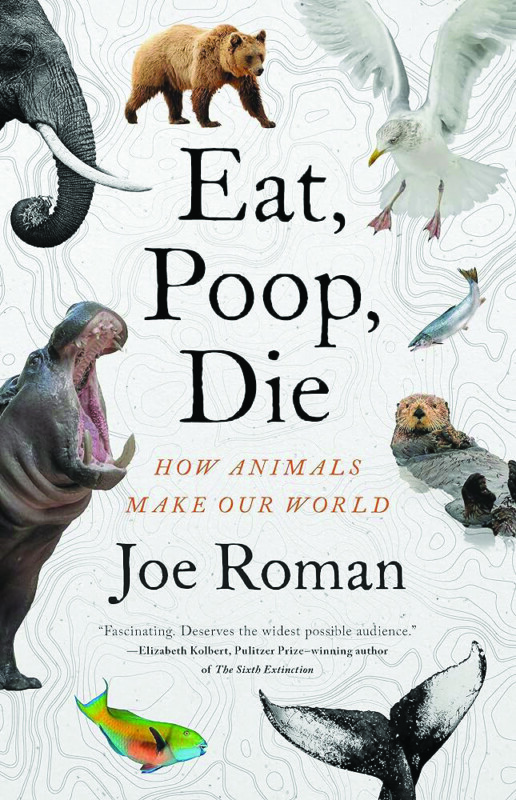Class, by Stephanie Land (Atria, 272 pages)
Stephanie Land’s dream of becoming a writer came through in a big way in 2019 when she published Maid, a memoir about working as a house cleaner for people who were clearly some of the worst human beings on the planet. The book landed at a time of increasing concern about income inequality, and the single mother’s stories about scrubbing other people’s toilets to pay the bills struck a chord; it was a New York Times bestseller, was adapted for a Netflix series and praised by former President Barack Obama as one of the best books of the year.
Land is now back with Class, subtitled “a memoir of motherhood, hunger and higher education.” Because of the success of Maid, it was immediately chosen for the Good Morning America book club and will no doubt enjoy commercial success. Unfortunately, it’s an Eeyore of a book, gloomy and resentful, which detracts from the social messages that Land wants to convey.
She begins in familiar territory, which can best be described as “He done me wrong.” The predominant “he” in this case is the father of her child, Jamie, who readers of Maid will remember had little interest in being a husband or father, and who, according to Land, is the cause of many of her struggles. At the beginning of the book, he has, for example, abruptly said that he will not be able to take their daughter, Emilia, for the summer, as had been arranged. This left Land scrambling to find the vast amounts of child care that she needs because (a) she has to work, fair enough, but also (b) she is enrolled in college, a longtime dream that is contributing to her financial problems in a big way: She will soon graduate $50,000 in debt.
On top of that, she’s planning on getting a master of fine arts. “Writing,” she says, “the real writing that mattered, was meant to be done without cartoons blaring in the background and someone asking for pancakes.”
There’s nothing wrong with ambition, except for the fact that Land’s young daughter seems to be standing in the way of everything her mother wants to do. She’s 5 and is the most sympathetic character in this book. She has a father who’s constantly canceling on her — saying he can’t see her because he has to work — and a mother who keeps leaving her with babysitters or because she has to work. Children tend to love their parents no matter what, and so Emilia is not resentful like her mother, even as she gets sent to detention for being late to school, and has people fail to pick her up when Land forgets it’s an early release day.
Meanwhile, Land has many bones to pick here, not just the grievances she has with her ex, starting with her family. Her mother, she writes, resigned from parenting when Land was 21, moving to Europe to be with a new love. Her father, Land says, was not helpful at all when she called him to say she needed help paying for child care, asking if he would ask his sister to pay or contribute. The aunt is another Bad Person. “In my early twenties, she got upset over people not being grateful enough for the gifts she bought for Christmas,” Land writes. “Ever since, we received a few pairs of socks from her instead. In her defense, they were nice socks.”
Ouch. It is that kind of zinger that makes us want to put Land at arm’s length as she continues with her story of woe, lest she find something bad about us to write in her next memoir. In Land’s world, most everyone is unhelpful and unpleasant, from the guidance counselor at the University of Montana-Missoula to the judge who considers her request for a child support modification and deems her “voluntarily underemployed.”
As in Maid, Land seeks to roll back the assorted indignations of the working poor, those who, for whatever reason, are at the mercy of student loans and credit card payments, with every dollar allotted, and then some, and little more than peanut butter and grape jam in the pantry. Along the way, she wants to take away the stigma of single mothers not being “enough” for their children without a partner. And she writes movingly of trying to date with a child: “Having a kid and trying to date felt equivalent to hanging a wedding dress in my closet and bringing it out to show a person when they picked me up for the first time. Men no longer saw me as a lighthearted dating prospect. They looked at me and I could almost see the reflection of white picket fences and family dinners at five thirty in their eyes.”
But as Land rolls through her days of struggling to take care of her daughter while working and going to school (and at this point, she’s starting to shop around stories that would eventually comprise Maid), it can be difficult to sustain sympathy for her as she gets pregnant again (without being able to identify the father) and applies for another credit card. The people close to her who dare to question her choices get knifed. When one woman, who is giving Land a ride home because her car has died, says, “I’m worried you’re not making good decisions here,” Land writes about “concern trolling,” which she said wasn’t actual concern but “an opportunity to act as if they knew better than me.”
At one point, Emilia, whose tender heart has been broken by her father multiple times, says to her occasional male babysitter and her mother’s roommate, “Are you going to be my new dad?” The answer is no, but she will learn that she’s going to be a big sister, right about the time her mom learns that she’s no longer eligible for food stamps because Emilia has turned 6 (the SNAP formula says Land was able to work full-time then even though the school day was six hours). Not surprisingly, the child asks who the father of her soon-to-be little sister is. Land replies, “There’s no dad, or he’s not around anyway. The baby is just ours.”
That’s a sweet sentiment, which seems to set the little family up for happiness in the future. And despite the ongoing fight with her ex over child support, which seems to be the primary conflict the book is built around, we know how this story ends, or at least we do if we follow Land on social media. No longer a victim of men and circumstance, she is hailed as a voice of the underclass, a champion of those who are being trampled on by late-stage capitalism and predatory colleges and lenders. Nothing wrong with that — but the question remains: is this book, and her writing generally, substantially better for her $50,000 college debt? We’ll never know, nor are we allowed to ask. B-






